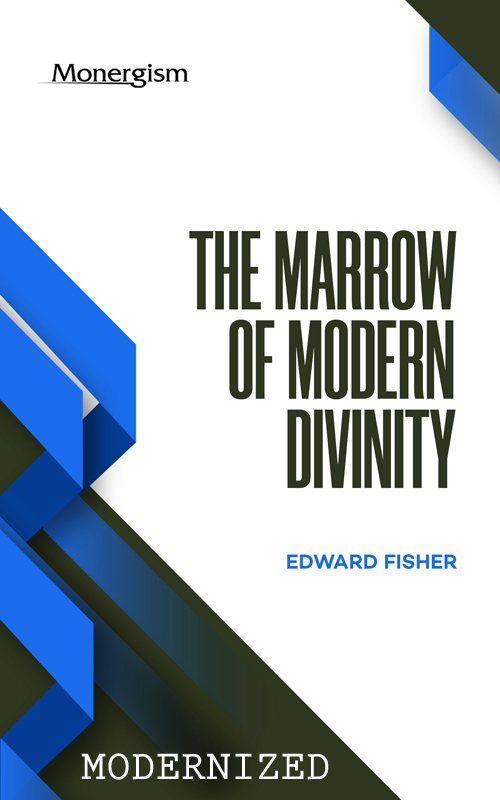 by Edward Fisher
by Edward Fisher
IN EPUB, .MOBI & .PDF FORMATS
The gospel method of sanctification, as well as of justification, lies so far out of the ken of natural reason, that if all the rationalists in the world, philosophers and divines, had consulted together to lay down a plan for repairing the lost image of God in man, they had never hit upon that which the divine wisdom has pitched upon. This classic text on the gospel guides us and shows how to avoid the pitfalls of legalism and antinomianism
This is lightly modernized and annotated version of Edward Fisher’s The Marrow of Modern Divinity. This is the 1850 edition of the Marrow which includes Part 2, the Interrogatories of the Assembly to the Marrow Men, and Thomas Boston’s notes on the book. There are epub and mobi formats too.
This is an extraordinary work, and it continues to be timely. I’ve linked Prof. Herman Hanko’s objections to it, and Jos. Hall’s Mid-America Journal of Theology article on the Marrow Controversy. Sinclair Ferguson’s lecture series on the controversy is there too.
- Marrow Controversy - Ferguson (pro) 300k
- Marrow Controversy - Hanko (contra) 75k
- Marrow Controversy - Hall (mid) 125k
More Resources:
Pastoral Lessons From the Marrow Controversy (3-Part MP3 Series) by Sinclair Ferguson
Nomism & Antinomianism: A Survey of the Marrow of Modern Divinity (13-Part Podcast Series)
by R. Scott Clark
The original version with no modernization also available as a free eBook here.
Also a new book by Sinclair Ferguson on the Marrow Controversy
The Whole Christ: Legalism, Antinomianism, and Gospel Assurance - Why the Marrow Controversy Still Matters by Sinclair Ferguson
The debate in Rom 6.15 has never ended, concerning the relationship of justification by grace alone (monergistic), to sanctification under the Law of Christ (synergistic). I’ve posted a simple graphic that my congregation thought was helpful (The Two Pillars of Salvation). I find that we’re often sloppy with our language. We use “salvation” when we actually mean “justification” – and somehow sanctification gets left out of the discussion, leading to some form of antinomianism. And when we bring sanctification into the discussion, someone yells “legalism!” because they think it’s about justification – they think we’re talking about the means of salvation, and not our response to salvation. Then there’s the challenge of MacArthur’s lordship teaching on evangelism, which caused many to confuse the two pillars, even though John is not at all unclear about it himself.
So it’s always good to examine what we teach and preach, to ensure that the Gospel we proclaim is clear, simple, and sound. We want to be sure that what we’re spreading is good seed, and not tares. This book, I think, gives us another opportunity to do that.
Bill Gross
elder-pastor
Hope Chapel of Colorado Springs
-----

